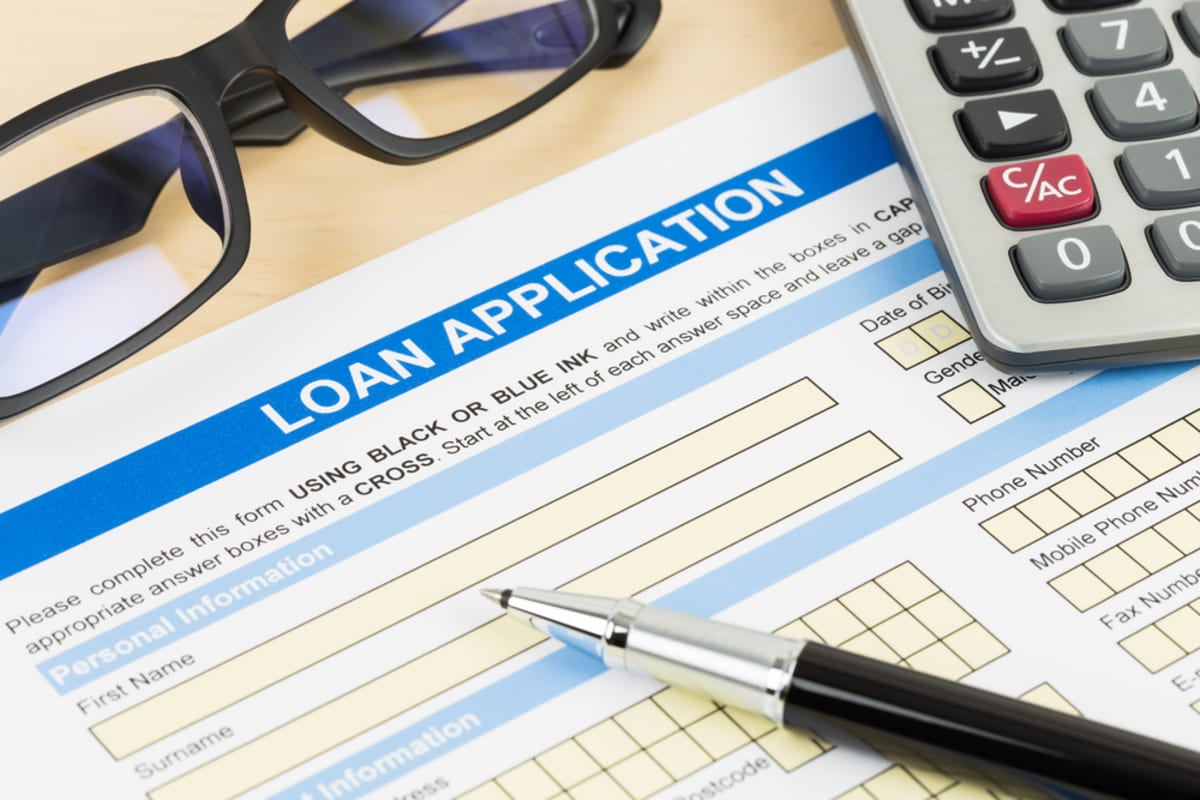Applying for a personal loan can often be a stepping stone to achieving personal and financial milestones. Whether it's to fund a dream holiday, consolidate debt, or cover an unexpected expense, a personal loan can be a lifesaver.
However, the application process may seem daunting for many, especially for the document requirements for a personal loan. This blog aims to demystify the process by identifying the key documents you'll need to have on hand when applying for a personal loan. Armed with the right information from our team at Fund It Detroit, you can navigate the application process confidently.
Essential Loan Documents Required
There are several documents that lenders typically require when you're applying for a personal loan. Here, we'll provide an overview of those essential documents to further streamline your application process.
Proof of Identity
To apply for a personal loan, you'll need to provide proof of identity. This can be a government-issued identification such as a passport or driver's license. Some lenders may also accept other forms of ID, like a social security card or birth certificate. It's crucial to have original copies of these documents, as photocopies may not be accepted.
Proof of Income
Lenders need to be sure that you have a steady income source to repay the loan. You could provide this proof through recent pay stubs, a tax return, or bank statements that show regular salary deposits. Self-employed individuals may need to provide additional documentation, like business registration documents or financial statements.
Proof of Residence
You'll also need to prove your current residence. This could be a utility bill in your name, a lease agreement, or a mortgage statement. The address on these documents should match the one you provided on your loan application. This information helps lenders verify your residence stability, which could impact your loan approval.
Employment Verification
Lenders often require employment verification to substantiate your source of income. This could be a letter from your employer stating your employment status and income, or for those who are self-employed, evidence showing the existence of your business.
Some lenders may also contact your employer directly for this information, but they will ask for your permission before doing so. Keep in mind that this information is vital as it gives the lender a picture of your job stability, hence influencing your loan approval chances.
Credit History and Credit Score
Your credit history and credit score play a significant role in the loan approval process. Lenders will request your credit report from credit bureaus to assess your creditworthiness. This report includes the details of your previous loans, repayment history, defaults, if any, and your overall credit score.
A high credit score can improve your chances of loan approval and may even help you secure a loan at a lower interest rate. On the other hand, a low credit score might decrease your chances of approval or result in a higher interest rate.
If you're unsure of your credit score, you can request a free credit report from several online services or directly from major credit bureaus.
Debt-to-Income Ratio (DTI)
Your Debt-to-Income Ratio (DTI) is another crucial factor that lenders consider when reviewing your loan application. This ratio represents the percentage of your monthly income that goes toward paying off your existing debts.
Lenders use DTI to assess your ability to manage payments and handle the additional debt load. Typically, a lower DTI indicates a healthier financial situation and increases your chances of loan approval.
To calculate your DTI, divide your total monthly debt payments by your gross monthly income. For instance, if your debt payments amount to $2000 and your gross monthly income is $6000, your DTI would be 33%.
Keep in mind that different lenders might have different DTI requirements. However, generally, a DTI of 36% or lower is preferred by most lenders. If your DTI is high, it might be advisable to pay off some of your existing debt before applying for a new loan. This could improve your DTI and increase your chances of approval.
Loan Documentation for Self-Employed Borrowers
If you're self-employed and looking to get a personal loan, you know the drill: extra paperwork. However, we've got your back with a rundown of what you'll need to show lenders that your business is as rock-solid as Detroit's comeback story.
Proof of Income: The Backbone of Your Application
Lenders want evidence that your earnings are steady enough to handle loan payments. Think tax returns, bank statements, or profit and loss statements—documents that speak volumes about your financial health. Get these ready:
- Tax Returns (last two years)
- Bank Statements (past six months)
- Profit and Loss Statements
You might find this step tougher than others because traditional paycheck stubs aren’t in the cards for you.
Credit Score Check-Up: Know Where You Stand
Your credit score is like a GPA for your finances; lenders look at it closely. So before applying, give yourself an honest assessment by getting free reports from major credit bureaus.
A strong score can make all the difference—and if yours could use some TLC, now’s the time to start fixing any issues.
Diving Into Debt-to-Income Ratio Calculations
Lenders love numbers—especially when they tell them how much debt you’re juggling compared to what’s coming into your pocketbook each month—that's called debt-to-income ratio (DTI). To figure out where you stand:
- Add up monthly debts,
- Gauge against monthly income,
- Punch those numbers into a DTI calculator—or just do some old-fashioned math.
A lower DTI shows lenders there’s plenty of room in your budget for loan payments. So aim to keep it down before applying. You want to bring your numbers to the table like a great Motown hit—impressive and hard to ignore.
Collateral Considerations: What You Can Offer
A lender may request that you provide something as security for the loan. This is where things get real—assets like real estate or a valuable car can come into play. Just be prepared to discuss the value of what you're willing to put on the line and have any ownership documents handy.
If you have any queries or difficulties, our squad is available to provide the aid you need. Don't hesitate to reach out.
 Common Loan Documentation Mistakes to Avoid
Common Loan Documentation Mistakes to Avoid
When applying for a personal loan, every detail counts. However, borrowers often trip up on the paperwork. Check the details carefully.
Incomplete Forms
Filling out forms can be tedious, but leaving blanks is like hitting potholes on your road to approval—it can slow you down or stop you in your tracks. Double-check each section and answer all questions fully; it could mean the difference between a smooth ride and a flat tire.
Avoid submitting applications with missing information which might make lenders question your attention to detail or worse—your credibility.
Mismatched Information Across Documents
Lenders check for consistency across documents. If there are mismatches—for example, if your W-2 shows one income figure while your pay stubs reflect another, it raises red flags fast.
To avoid this pitfall, ensure that all figures match up across different documents before submission.
Outdated Financial Statements
Make sure recent financial activity is reflected in the documentation provided so lenders get an accurate picture of where you stand now—not months ago.
Credit Report Errors Unchecked
Credit reports aren't infallible; they may contain errors that could unfavorably impact your credit score. These errors could range from incorrect personal information to discrepancies in loan or credit card accounts.
Before applying for a personal loan, thoroughly review your credit report. If you spot any errors, contact the respective credit bureau to dispute the inaccuracies.
Keep in mind that correcting these errors could potentially improve your credit score, strengthening your loan application. It's an essential step in ensuring your credit report accurately represents your creditworthiness.
No Proof of Additional Income Sources:
Document additional income sources properly—they can strengthen your application significantly by lowering perceived risk.
To sidestep these mistakes:
- Gather required documents ahead of time;
- Painstakingly review them;
- Contact previous employers or banks if necessary;
- Last but not least: Don’t rush through filling out forms.
Practicing diligence upfront saves time later—and keeps those wheels turning toward funding success.
Guidance on the Personal Loan Application Process
The personal loan application process may seem daunting, especially if it's your first time. The key is to be prepared and understand each step in the journey. Here's some guidance to help you navigate the process smoothly:
- Research Potential Lenders: Different lenders have varying loan terms, interest rates, and eligibility criteria. Take time to research and compare options to find a lender that suits your financial situation and needs.
- Check Your Credit Score: Before applying, know your credit score. It's a significant factor in the loan approval process and can influence your loan terms and interest rate. If needed, take steps to improve your credit score before applying.
- Gather Necessary Documentation: As discussed earlier, you'll need to provide several documents during the application process. Start collecting these documents early to avoid delays and ensure a smooth process.
- Complete the Application Form: Fill out the loan application form carefully and thoroughly. Ensure all the information you provide is accurate and consistent with the documentation you're submitting.
- Submit Your Application: After you've thoroughly checked everything, submit your application. The lender will review your application and documents and then decide on approval.
- Wait for Approval and Disbursement: If approved, you'll receive a loan offer with the amount, terms, and interest rate. If you accept the terms, the loan will be disbursed to you, often directly into your bank account.
Remember, while applying for a loan can be a beneficial way to manage financial needs, it's crucial to borrow responsibly. Consider your ability to repay the loan and understand all the terms before signing any agreement.
 Ensure You Have the Right Loan Documents With Fund It Detroit
Ensure You Have the Right Loan Documents With Fund It Detroit
Obtaining a personal loan can be a powerful tool to manage your finances, fund big-ticket purchases or consolidate debt. However, securing a loan requires careful planning and attention to detail.
From understanding your credit score to preparing the necessary documents and paying close attention to your debt-to-income ratio, there are several steps you can take to increase your chances of approval.
At Fund It Detroit, we bring you closer to your financial goals, one step at a time. We understand that acquiring a personal loan can often seem like an uphill battle. However, our dedicated team is here to simplify this process.
We provide comprehensive guidance on the loan application process, assisting you in understanding the essentials of personal loans and what lenders look for. Our team can help you evaluate different loan options, enabling you to make an informed decision that fits your unique financial context.
Contact us today to apply for a loan with our team!







